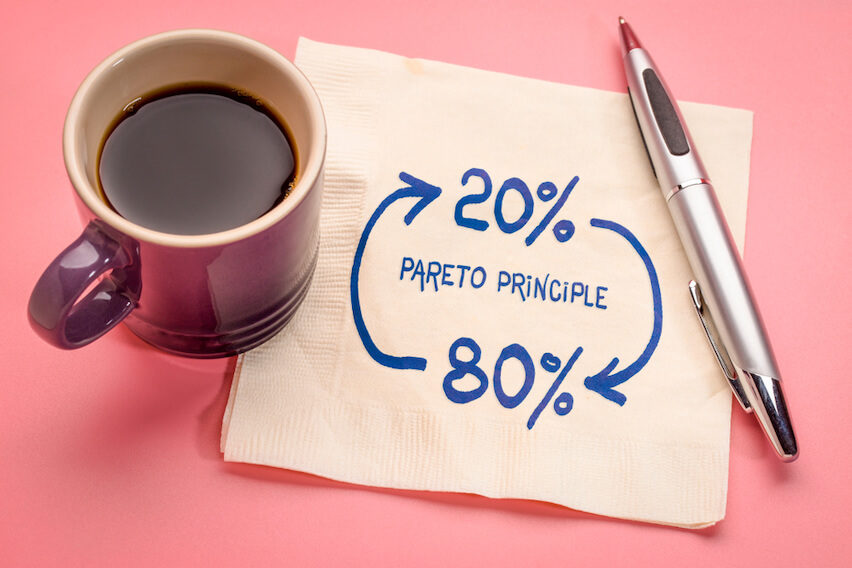Edition: February 7th, 2022
Curated by the Knowledge Team of ICS Career GPS

- Excerpts from article by Nabil Alouani, published on EntrepreneursHandbook.co
Humans evolved to do maths. We have specific brain regions dedicated to numbers and calculations. This was useful for our ancestors as they split the apples among their fellow cavemen, and estimated if they could cross the jungle before nightfall!
As centuries rolled by and human beings evolved, we started to use maths for more sophisticated purposes.
Below are 4 maths principles that can help you make smarter business decisions as an entrepreneur:
1. Probability, Baseline and Estimations
- Probability is a branch of mathematics designed to calculate the likelihood of an event.
- Smart entrepreneurs rely on probability to estimate the chances of success of their businesses, which keeps them rational and grounded in reality.
- For instance, Elon Musk gave SpaceX and Tesla a 10% chance of success when he started them. It looks like a pessimistic prediction but on average 90% of startups fail.
- Those realistic numbers gave Elon Musk and his teams motivation to push forward because they knew the odds were against them. And in case of a failure, it’s comforting to know they won’t be the only ones.
- By the way, the 90% failure rate among startups is called a baseline.
- In general, a baseline is the average likelihood of a specific event or the reference point you can use to calculate an estimation. More often than not, baselines produce realistic predictions.
- Probability and baselines are great decision-making tools because they rely on objective data.
- Unfortunately, most entrepreneurs come up short with objectivity. They take pride in irrational gut decisions and end up shutting down their businesses.
- Bet on rationality. Use baselines.
2. The Kelly Criterion
- John Kelly was a scientist who worked in an innovation lab. Kelly’s job was to analyse telephone signals.
- He came up with a formula that allowed him to determine the optimal magnitude for long-distance calls.
- Little did he know that legendary investors like Warren Buffet and Bill Gross would later use his discovery to maximise their odds of winning in the investing game.
- There are many versions of the Kelly Criterion but they all serve the same core purpose: to tell you what percentage of your money you should allocate to a given investment.
- Suppose you have an investment opportunity that’s 80% likely to succeed (probability of winning), and you’re promised 20% in profit (gain). If the investment fails, however, you lose 10% of your money (deficit). Going by the Kelly Criterion (K%), you should invest 70% of your money.
- Even with ultra-amazing odds, math advises you against going all-in.
- These results don’t only apply to money investments.
- You can use the Kelly Criterion to manage your time, sales, and content.
- In all cases, never ever bet 100% of your resources on the same gamble.
3. The Pareto Distribution
- Pareto’s first observation was generalised into the following principle: 80% of the consequences come from 20% of the causes.
- In business, the Pareto distribution means that 80% of your income will come from 20% of your work.
- If you seek to optimise your time and energy, you ought to identify your 20% (which could be products, tasks or clients) and give them more attention.
4. The Minority Rule
- Smart entrepreneurs anticipate the Minority Rule by satisfying the preferences of inflexible minorities.
- They know that the flexible majority will simply follow.
- As a result, they broaden their clientele and maximise their gains.
- Here are four quick examples that cover different industries:
- When you open a restaurant, you want to have vegan options. Vegetarians, flexitarians, and everybody else can eat vegan meals, but vegans never eat non-vegan food.
- When you create video content, add subtitles. People whose ears aren’t used to English will still be able to consume your content. The same applies to those who can’t turn on the sound because they are in a public place.
- When you develop an app, make a web version for people who use computers more than phones.
- When you develop a product, make sure to adhere to the safety measure of the strictest countries out there. It will make it easier to ship your products overseas.
Maths empowers logical reasoning and, hence, empowers smart decisions. In the business game, those who make the smartest decisions win.
Give yourself a tactical advantage by remembering these four principles:
- Probability & Baseline — Make your estimations based on general tendencies — like 90% of startups fail. You’ll be much more realistic.
- Kelly Criterion — Diversify your investments, including how you spend your time.
- Pareto Distribution — 80% of the consequences come from 20% of the causes. Focus on what matters.
- Minority Rule — Consider the inflexible minority while designing products and services.
Also, never forget that you have the power to be the exception to any equation out there.
….
Have you checked out yesterday’s blog yet?
Education Trends: Why taking a break from social media is so important, and how to do it.
(Disclaimer: The opinions expressed in the article mentioned above are those of the author(s). They do not purport to reflect the opinions or views of ICS Career GPS or its staff.)
Like this post? For more such helpful articles, click on the button below and subscribe FREE to our blog.





One Reply to “Career Trends: 4 Maths Principles Every Entrepreneur Should Use”